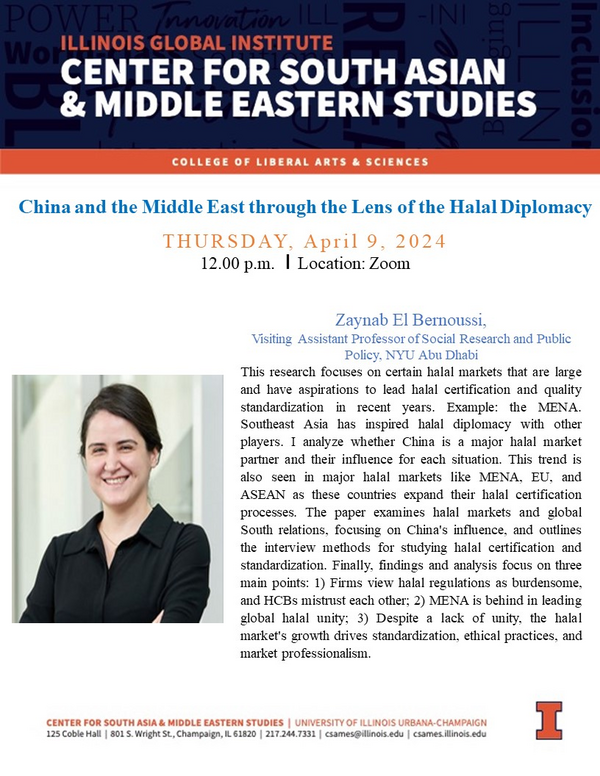
- Sponsor
- Center for South Asian and Middle Eastern Studies
- Speaker
- Zaynab El Bernoussi, Visiting Assistant Professor of Social Research and Public Policy, NYU Abu Dhabi
- Registration
- Registration
- Contact
- Center for South Asian and Middle Eastern Studies
- csames@illinois.edu
- Views
- 252
- Originating Calendar
- Middle East Events
This research on the global halal economy focuses on select halal markets, which are significant in size and their aspiration of leading halal certification and related quality standardization in the past few years. The MENA is a case in point. South East Asia has been inspiring a halal diplomacy with other players. For each case, I systematically look at whether China is a significant partner in the halal market and projections regarding their influence. The expansion of the halal certification process in these countries also presents a trend that is now increasingly observable in major regional markets of halal, i.e., MENA, EU and ASEAN. The paper first presents a general review of literature in social studies of halal markets and international relations of the global South relevant to the topic of the research, notably with the growing influence of China. Then, the methods section provides an overview of the actors interviewed to learn about halal certification and quality standardization, and the questions that framed the discussions and exchange with them. Lastly, the findings and analysis section concentrates on three key arguments: 1) the halal protocols suffer from a double illness: firms find them burdensome and halal certification bodies (HCBs) from different countries tend to distrust each other; 2) despite being the symbolic center of the Muslim world, MENA countries seem to lag behind in terms of heralding global efforts to unify the global halal economy; 3) even if the global halal market lacks unity in terms of its framing, its growth is triggering important advancements in terms of standardization and quality control that institutionalize consumption and production ethics and professionalize the halal market.
